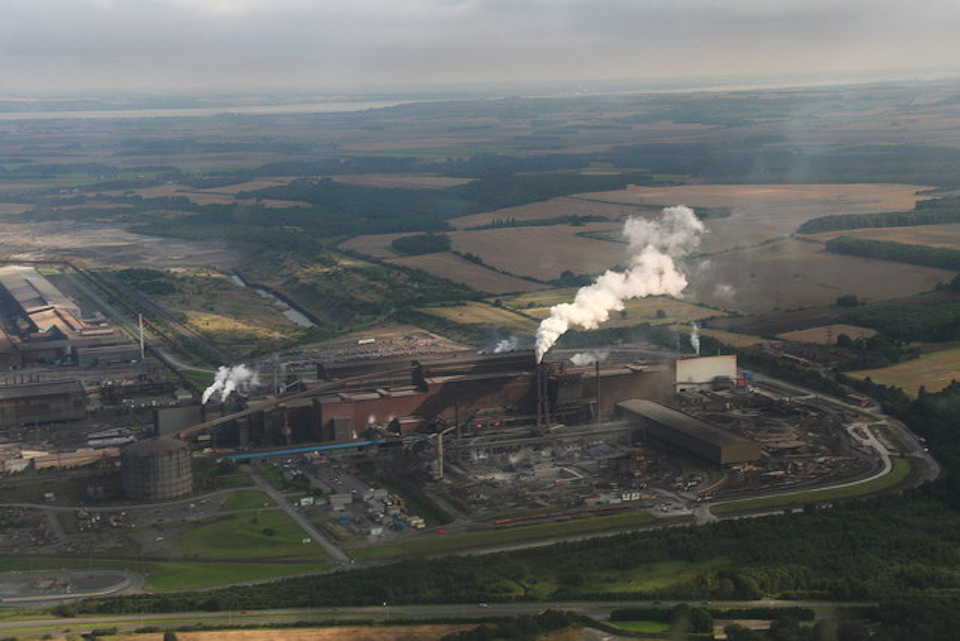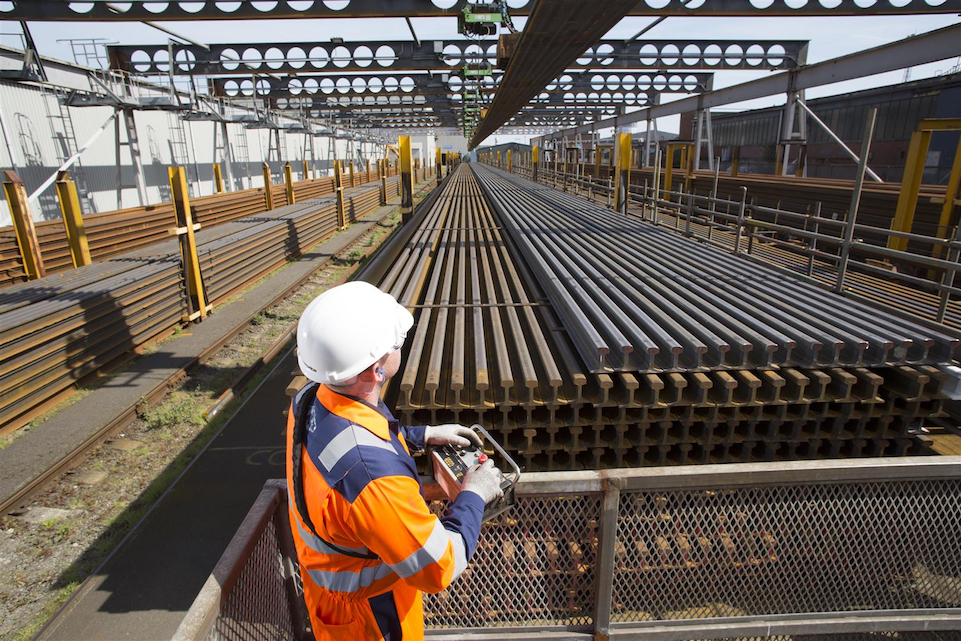UK’s rail-making plant British Steel sold to Chinese

The company responsible for the making of UK’s railway, British Steel, has been sold to the Chinese Jingye Group. The 3000-strong local workforce has met the news with relief, and the rail industry says it is delighted. Sources say this will secure the future of the business.
There has been a closure threat hanging over the source of rail manufacturing in Britain, ever since the remnants of British Steel went in to insolvency at the end of last year. The former state-owned steel manufacturer has seen a dramatic decline in fortunes over the past three decades, with many plant closures and redundancies.
New owners
There were fears that the industry would close completely, leaving Britain without any steel manufacturing capability. Of most significant to the rail sector is the plant at Scunthorpe, Lincolnshire in England, which manufactures heavy rails for the network and for export.

The new owners, Jingye Group of China, say they will now start a programme of investment in the business, which includes renewals and refurbishment at Scunthorpe. Headline among their stated plans are enhancements to the rail mill, and new power generating capacity to serve the works.
“It has not been an easy journey since we first announced our intentions in November”, said the Jingye Group chief executive, Li Hiuming. He went on to describe the conclusion of the takeover as the “beginning of a new illustrious chapter”.
Many jobs saved, some lost
Unions have broadly welcomed the end to the speculation over the future of the plant. However, while more than 3,000 jobs will be secured, there are likely to be redundancies of around 450 in number. Charlotte Childs, of the GMB union, said the deal was a big win for the industry, but was concerned over the job losses.”It is heartbreaking that long-serving members of high-skilled staff are seen as surplus to requirements”.

Scunthorpe will not be the only rail-making plant in the portfolio. Also part of the deal is the Hayange site in north-east France. The plant makes light rail products, notably tram tracks for the European market, including the UK. Its importance to the French economy had been a sticking point in the negotiations.
Industry reaction
Rail freight is of course a key winner in the saving of the Scunthorpe works, since the plant has an integral relationship with rail, going back 150 years. Rail freight workers are among the 20,000 who depend on the plant as part of the supply chain.
Recognising the strategic importance of the deal, Andrew Haines, Network Rail chief executive, was aware of the part that Scunthorpe plays in supporting the rail industry.“We are delighted with news that the sale of British Steel to Jingye has completed, securing the future of the business”, he said. “We have given extensive support to British Steel and the official receiver throughout this process and we look forward to continuing this relationship with the new owner. British Steel is a major supplier to Network Rail and plays a vital role in our work to safely run the railway for the millions of people who rely on it every day.”
Stainless prospects up for debate at RailFreight Summit
There is however some adverse comment among the business press. British Steel was seen as a failing business in state hands, but its fortunes have been little more than stabilised, despite a number of private equity investments.
Can Jingye Group can finally turn around the trading position, and make the business as strong as the products that roll out of the remaining mills? Maybe the scale of their 1.2bn British pound (1.4bn Euros) investment plan will succeed where other, lesser schemes have failed. Scunthorpe could yet become an iron-clad success.
Red hot topics like that are at the heart of the debate at the forthcoming RailFreight Summit UK on 7 April in Salford, Greater Manchester. Taking a closer look at economic prospects for rail freight, and its vital role in supporting development and enterprise, is the theme of the day. Registration for this event is now open. For more information visit the Summit website.
You just read one of our premium articles free of charge
Want full access? Take advantage of our exclusive offer




